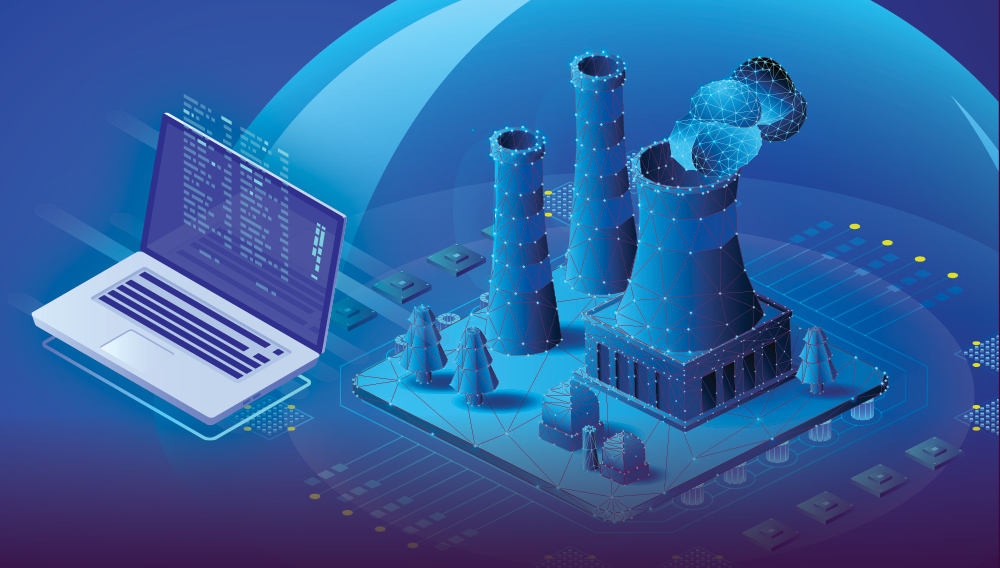What Is Nuclear Cybersecurity?

Imagine a hacker sitting thousands of miles away, infiltrating the digital control systems of a nuclear power plant. With just a few keystrokes, they can manipulate reactor settings, disable security protocols, and disrupt emergency response systems. It seems like the plot of a science fiction movie, but the reality is that cyber threats to nuclear facilities are evolving fast.
Nuclear cybersecurity focuses on protecting the digital systems, networks, and communication networks in nuclear facilities. This includes following guidelines from the International Atomic Energy Agency, detecting and responding to cyberthreats with advanced detection and response strategies, and monitoring unauthorized access.
Let’s explore some of the common cyberthreats the nuclear industry deals with and how they combat these risks.
What Are Some Common Cyberthreats in the Nuclear Industry?
Nuclear infrastructure is a target for cyberattacks because it relies on digital systems. Hacktivists, cybercriminals, and terrorists are all potential threats to nuclear power plant security. Risks can also arise from outdated systems, poor maintenance, and weak security practices. In pursuit of critical infrastructure protection, the following threat areas must be addressed.
Technology-Related Vulnerabilities
Nuclear power plant security often faces technology-related vulnerabilities. Some plants operate on outdated software that makes them prime targets for cyberattacks. Breaches in general management software could expose sensitive personnel data, and compromised control systems could threaten security and defense operations. Malicious hardware or software could also be introduced into a plant’s supply chain.
Some real-world incidents that show the effects of cyberattacks include those on Wolf Creek Generating Station, in the United States; Korea Hydro and Nuclear Power, in South Korea; and Kudankulam Nuclear Power Plant, in India. It’s critical that the nuclear industry strengthen cybersecurity to safeguard national security and public safety.
Bad Actors and Physical Threats
Terrorist organizations, insider threats, cybercriminals, and hacktivists pose risks to nuclear cybersecurity. Insiders could potentially leak or steal sensitive data, while adversaries could target plant personnel for infiltration. Not to mention, any disruptions in communications between plants, operators, or regulators could threaten the grid’s reliability. Resulting cyberattacks on control systems could cause physical damage and, in extreme cases, the release of radiation.
Cultural and Industry Vulnerabilities
Physical and technological threats aren’t the only worries the nuclear industry has. Cultural and industry-specific vulnerabilities also pose a considerable risk. Resistance to change, lack of cybersecurity awareness, and complacency can all lead to weak security practices. Regulatory delays, supply chain vulnerabilities, an aging infrastructure, and a shortage of professionals can create problems, as well. Improving security, enhancing collaboration, improving risk management, and securing supply chains are all important steps the nuclear industry must take to mitigate these kinds of vulnerabilities.
How Do Power Plants Protect Themselves from Cyberthreats?
In today’s technologically advanced age, it’s critical to nuclear power plant security that operators implement certain protocols to prevent vulnerabilities and threats. Here are some ways they do this:
Evaluation and risk analysis — conducting thorough assessments to identify security weaknesses and determining the likelihood of vulnerabilities happening.
Proactive response plans — initiating effective communication and outlining responsibilities among team members, as well as defining proper procedures for incident analysis, containment, and recovery.
Network security — implementing strong security controls to ensure that only authorized personnel have access to networks.
Employee training — educating employees on identifying cyber threats and the importance of cybersecurity, and encouraging partnerships between the private and public sectors.
Continuous monitoring — keeping constant watch on systems to identify vulnerabilities, staying informed of evolving cyberthreats, and working closely with government agencies to ensure protection.
Start a Career in Nuclear Engineering Technology with Excelsior
You can make a difference in critical infrastructure protection by fighting cyberthreats in the nuclear industry. A nuclear engineering technology degree can open doors to many jobs in the nuclear field. Excelsior’s ABET-accredited Bachelor of Science in Nuclear Engineering Technology program gives you a background in reactor operations, chemistry, quality assurance, and more. And the program’s Nuclear Cybersecurity concentration provides foundational knowledge of cyber defense, compliance, business continuity, and more to prepare you for cybersecurity roles in the nuclear industry.
Contact an Excelsior admissions counselor to get started on an exciting new career on the front lines of cyber defense and critical nuclear safety.




